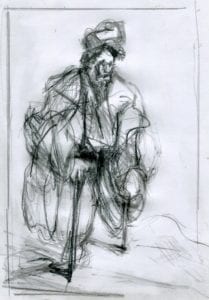
On the Joy of walking again means the goal of any amputation recovery is to get back on your feet. Frederic Gros wrote a book that reinforced the joy of meandering by describing the way several inspiring philosophers expressed their appreciation of the psychological effects of walking: Thoreau, Nietzsche, and Kant.
Gros explains how many philosophers practiced differentiating walking meditations. For Thoreau, it was the joy of seclusion. Rimbaud walked off his rage. Nerval saw it as a cure for his melancholy. Nietzsche and Rousseau both walked to improve their thinking. For Kant, his daily walk at precisely the same time quelled his prestigious mental juggernaut and helped him escape his,” compulsion of thought,”
Recovery From an Amputation is Learning the Joy of Walking Again
Walking reinforces your sense of freedom. It allows you to escape your problems and concentrate on your relationship with nature. The more you walk the process of self-liberation is accentuated. Your mind begins to wander. You see the beauty in nature as your sense of self is dwarfed by things around you. By walking you are not going to meet yourself but when you use walking as a meditation you will know yourself more and see where other people’s opinions of you have less of an effect.
If the walking cure gets you and your walks turn into tracks you start to get a glimpse of the freedom of pure renunciation. This comes with walking when you no longer know how much you have been walking. I love to walk and always hit the road or a country path every time I could. When pressure ulcers on both feet made every step increasingly painful but it didn’t stop me. The desire to wander was too strong. I was in a cast so long my other hip blew out. Twenty years later I was facing an amputation.
The Philosophers Walk On
Nietzsche may have written this after a long stroll. Sit as little as possible; do not believe any idea that was not born in the open air and of free movement — in which the muscles do not also revel. All prejudices emanate from the bowels. — Sitting still (I said it once already) — the real sin against the Holy Ghost. He wrote his book The Wanderer and His Shadow while he was walking eight hours a day. The entire book was composed in transitu. That amount of walking he claimed made his head the clearest and his thoughts sharp and pithy.
Kant walked to escape. He called it a way to escape, a distraction from work he called it. He was full of ideas as to how and what to do to optimize his walking experience. It was all that we call today Obsessive-compulsive disorder. He studied enough yoga to do Pranayama. He breathed in one side of his nose and out the other. Indian yogis believed this practice conserved energy. He always took the same route. People in his city said they could set their watches by his walks and they called the route he took, which was always the same the philosopher’s walk.” He skipped this ritual only twice in his life. Once to get a copy of Rousseau’s scandalous book Emile before it sold out and when the French Revolution broke out signaling the end of European aristocracy.
Finally On The Joy of Walking Again
I had a successful amputation. It took a long time to heal because my desire to walk caused me to fall five times. I can walk with a cane. It hurts to walk a great distance still but it is getting better. I will measure my recovery in feet and when the pandemic ends in miles I hope. Share with me on the joy of walking again.






We are all indebted to Dr.Herr who invented the microprocessor calf. I just got one and it is like night and day. No more stabbing pains. I got a Kenny Freedom because I am a swimmer and it is the only one that is waterproof. Proprio is not far behind and has made significant positive changes in walking with an amputation.